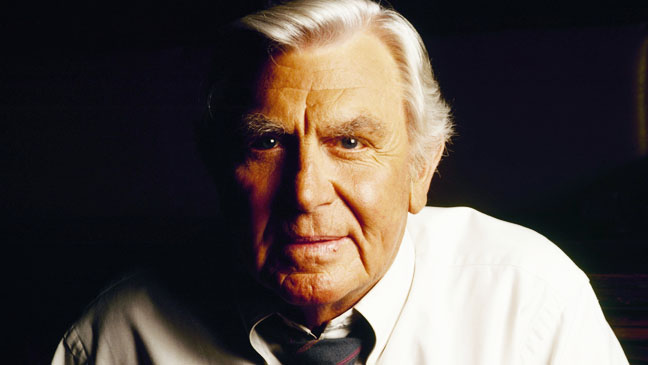
When the media headlined “Andy Griffith’s Cause of Death Revealed” in 2012, many readers might have expected a shocking secret, or a shocking twist that had been kept hidden for a long time. But it was not. Andy Griffith, the legendary actor of the small screen, died of a heart attack at his home in coastal North Carolina – the place where he was born and where he chose to live out the rest of his life in peace. The information may have been simple, but that did not lessen the weight of the event: an American television icon had passed away, closing an era in which kindness touched the hearts of millions through the screen.
Andy Griffith was not a flashy star, nor was he a symbol of Hollywood scandal. He was famous for the opposite: simplicity, integrity, and the ability to bring basic moral values to everyday stories. The Andy Griffith Show (1960–1968) had no dramatic climaxes, no action, and no crude laughs. Yet, throughout its eight seasons on the air, it was consistently among America’s most beloved shows. What made a fictional town called Mayberry – where there was seemingly no crime, no violence, and where the sheriff didn’t carry a gun – become part of America’s collective memory for more than half a century?
The answer lies in Andy Griffith himself – not just as Andy Taylor but as a real person. Andy represented a gentle, listening, forgiving, and caring type of masculinity. In a time of great upheaval in America – from the Vietnam War to the civil rights movement – Mayberry and Andy was a spiritual refuge. It didn’t shy away from reality, but instead chose to respond to it with calmness and kindness.
So when news reports reduce his life to a headline like “Cause of Death Revealed,” there is a part of the public that feels a sense of loss. Not because people don’t want to know why he died, but because the way we talk about a person’s passing reflects how we judge their legacy. Perhaps what makes readers pause before the headline is not because they are curious about what he died of, but because they miss him – and all that he represented.
In the modern media landscape, where entertainment news is increasingly sensational, the death of a great artist is often reduced to keywords: “cause,” “hidden,” “shocking,” or “unexpected.” But Andy Griffith didn’t need a shock to be remembered. He needed quiet – just like the way he lived and the way he acted: unpretentious, yet profound.
We often talk about an artist’s “legacy” after they die, as a way to sum up their life. Andy Griffith’s legacy is not the collection of titles, awards or box office revenue. It is the feeling of peace he leaves behind every time people replay an episode of The Andy Griffith Show, the lesson about how to be a human being that he quietly taught the audience through every line and small action.
And perhaps, that is what we need to “reveal” – not the cause of death, but the reason why, after more than 60 years, people still seek out Mayberry as a necessary memory in an increasingly hurried world.

